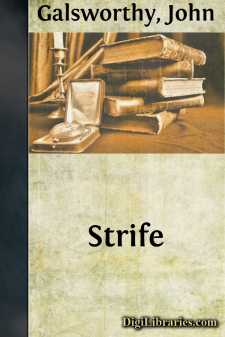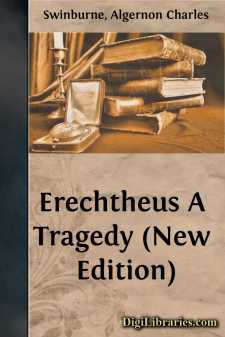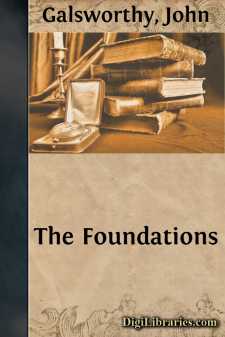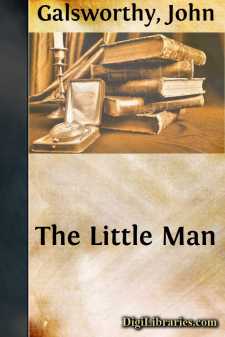Drama
- American 43
- Ancient, Classical & Medieval 45
- Asian 7
- Caribbean & Latin American 2
- Continental European 50
- English, Irish, Scottish, Welsh
- General 105
- Middle Eastern 1
- Religious & Liturgical 1
- Shakespeare 1
English, Irish, Scottish, Welsh Books
Sort by:
INTRODUCTION Encouraged by the reviewer who announced that the Introduction to my previous collection of plays was the best part of the book, I venture to introduce this collection in a similar manner. But I shall be careful not to overdo it this time, in the hope that I may win from my critic some such tribute as, "Mr. Milne has certainly improved as a dramatist, in that his plays are now slightly...
more...
by:
Robert Dodsley
PREFACE. After the lapse of about half a century since the issue of the last edition of Dodsley's Select Collection of Old Plays,[1] and the admittance of that work into the honourable rank of scarce and dear books, it seemed a desirable thing to attempt, with such additional improvements as might be practicable or expedient, a revival of a publication which has been a favourite with the lovers of...
more...
by:
John Galsworthy
ACT I It is noon. In the Underwoods' dining-room a bright fire isburning. On one side of the fireplace are double-doors leadingto the drawing-room, on the other side a door leading to thehall. In the centre of the room a long dining-table without acloth is set out as a Board table. At the head of it, in theChairman's seat, sits JOHN ANTHONY, an old man, big,clean-shaven, and high-coloured,...
more...
ERECHTHEUS.Mother of life and death and all men's days,Earth, whom I chief of all men born would bless,And call thee with more loving lips than theirsMother, for of this very body of thineAnd living blood I have my breath and live,Behold me, even thy son, me crowned of men,Me made thy child by that strong cunning GodWho fashions fire and iron, who begatMe for a sword and beacon-fire on thee,10Me...
more...
by:
Arnold Wynne
CHAPTER I EARLY CHURCH DRAMA ON THE CONTINENT The old Classical Drama of Greece and Rome died, surfeited with horror and uncleanness. Centuries rolled by, and then, when the Old Drama was no more remembered save by the scholarly few, there was born into the world the New Drama. By a curious circumstance its nurse was the same Christian Church that had thrust its predecessor into the grave. A man may...
more...
by:
John Galsworthy
ACT I LORD WILLIAM DROMONDY'S mansion in Park Lane. Eight o'clock of the evening. LITTLE ANNE DROMONDY and the large footman, JAMES, gaunt and grin, discovered in the wine cellar, by light of gas. JAMES, in plush breeches, is selecting wine. L. ANNE: James, are you really James? JAMES. No, my proper name's John. L. ANNE. Oh! [A pause] And is Charles's an improper name too? JAMES....
more...
by:
John Galsworthy
SCENE I Afternoon, on the departure platform of an Austrian railwaystation. At several little tables outside the buffet personsare taking refreshment, served by a pale young waiter. On aseat against the wall of the buffet a woman of lowly station issitting beside two large bundles, on one of which she has placedher baby, swathed in a black shawl. WAITER. [Approaching a table whereat sit an English...
more...
by:
Oscar Wilde
ACT I SCENE I The palace of the king of burmah. The scene is laid in the Hall of a Hundred Doors. In the distance can be seen the moat, the waiting elephants, and the peacocks promenading proudly in the blinding sunshine of late afternoon. The scene discovers king meng beng seated on a raised cushion sewn with rubies, under a canopy supported by four attendants, motionless as bronze figures. By...
more...
by:
Mrs. Inchbald
REMARKS. This tragedy has been so rapturously applauded on the stage, and so severely criticised in the closet, that it is a task of peculiar difficulty to speak either of its beauties or its defects, with any degree of certainty. To conciliate both the auditor and the reader, both the favourable and the unfavourable critic, the "Grecian Daughter" demands a set of Remarks for each side of the...
more...
by:
Ben Jonson
INTRODUCTION THE greatest of English dramatists except Shakespeare, the first literary dictator and poet-laureate, a writer of verse, prose, satire, and criticism who most potently of all the men of his time affected the subsequent course of English letters: such was Ben Jonson, and as such his strong personality assumes an interest to us almost unparalleled, at least in his age. Ben Jonson came of the...
more...











